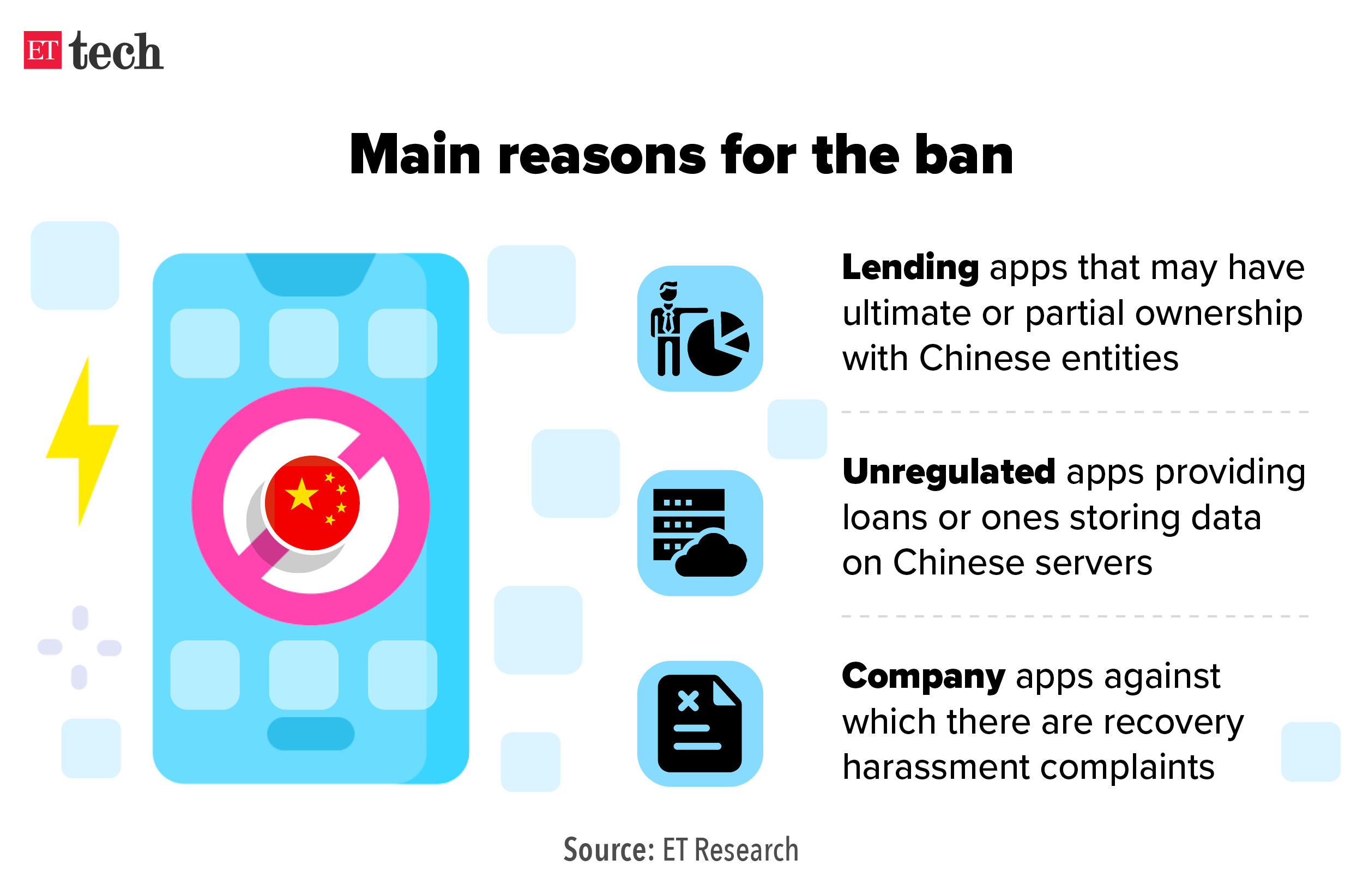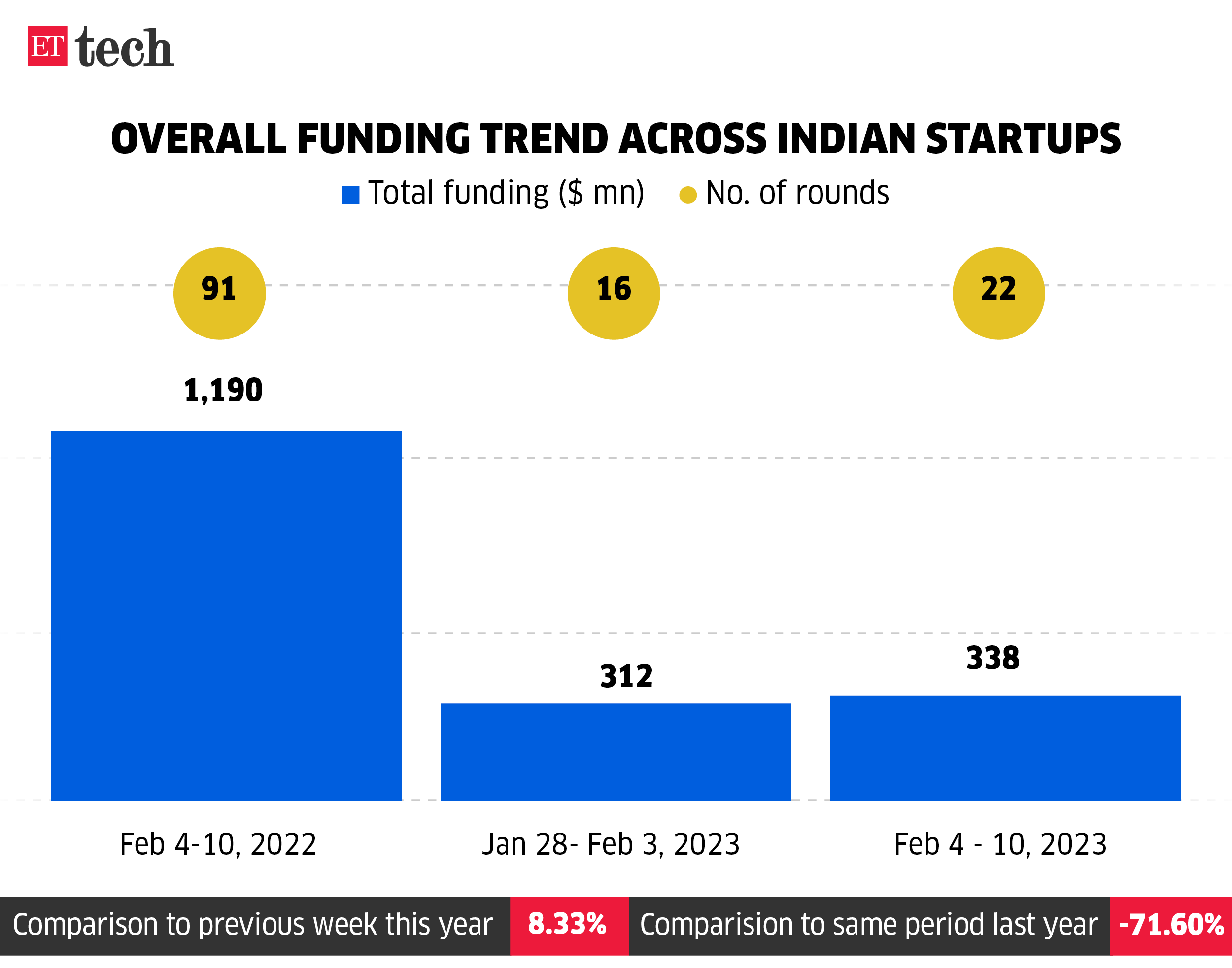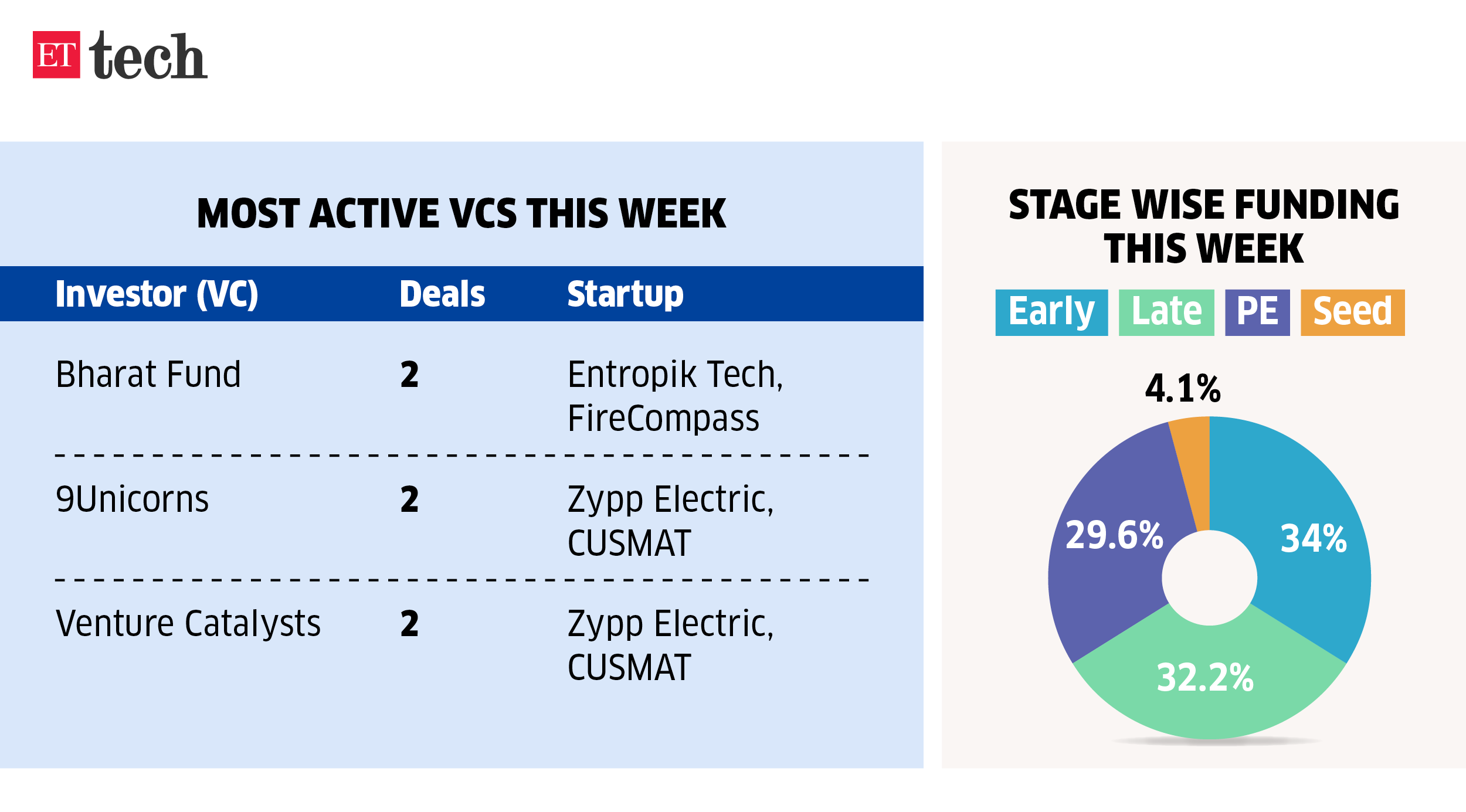Loan apps LazyPay, Kissht breathe easy as Govt revokes ban; SC refuses to modify order against Google
Also in this letter
■ No relief for Google from SC on Android antitrust case
■ Alibaba exits Paytm through block sale
■ ETtech Deals Digest: Funding winter continues for startups
MeitY to revoke ban orders on lending apps like LazyPay, Kissht

The Ministry of Electronics and Information Technology (MeitY) has started issuing orders to internet service providers (ISPs) and Play Store’s operator Google to revoke the blocking of some of the digital lending apps and websites, multiple persons told us.
This comes after online loan platforms submitted documents to the government to prove they are a regulated play.
Order revoked: “MeitY has received documents from several platforms over the last few days, and has been scrutinising the submissions to ascertain whether the ban is necessary or not….We have arrived to the conclusion that some of these companies do not need to be blocked and therefore some ban orders are being revoked,” a government official told us.
LazyPay and Kissht are two of the companies that will benefit from the repeal of orders.
Catch-up quick: Last Sunday, the government issued orders to block 138 betting and gambling apps and 94 quick loan-providing apps on an “urgent” and “emergency” basis for “improper data storage and transfer” to other countries as well as money laundering.
The government was of the view that these apps contained material that was “prejudicial to the sovereignty and integrity of India”.

Kissht is relieved: Kissht founder Ranvir Singh said: “We thank the government of India and MeitY for revoking the order to block Kissht. The government has shown unrelenting support in ensuring that credible and fully compliant apps such as Kissht continue to work towards greater financial inclusivity in the country.”
He added, “We have served more than 8 million Indians since 2017 and look forward to serving many millions more. Kissht continues to provide hassle-free credit to double our customer base in 2023.”
Also read | ETtech Explainer: why are quick-loan apps under the government scanner?
Google-CCI case: SC refuses to modify January order against tech giant

In another setback to Google, the Supreme Court on Friday refused to modify its January order that ruled against the tech giant in the Android antitrust case and asked it to make changes to its Android ecosystem, as directed by the Competition Commission of India (CCI) on October 20.
A Bench led by Chief Justice DY Chandrachud said it would not make changes in the previous order.
Google’s stand: Senior counsel Maninder Singh, appearing for Google, said there is a need to add/clarify the January order to the extent that it would ensure the unbundling of only Search and Chrome from Play Store and chrome from Search.
Google is “ready and willing” to comply with the directions of the CCI order to the extent that it would ensure the “unbundling of only (i) Search and Chrome from Play, and (ii) chrome from Search.”
SC’s Jan order: The apex court had refused to stay the Competition Commission of India (CCI) order that asked Google to make changes to its Android ecosystem by January 19. It also asked the search giant to clarify whether it’s willing to adopt the same standards in India that it observes in Europe.
Multiple penalties: In October 2022, (CCI) imposed a penalty of Rs 1,337.76 crore on Google for abusing its dominant position in multiple markets with its Android mobile operating system (OS), and prescribed a set of about a dozen key measures that the company has to comply with
It then followed it with another fine of Rs 936.44 crore and issued a cease-and-desist order in which the regulator prescribed eight corrective measures that Google Play needs to implement to correct the anti-competitive practices.
Also read | ETtech Explainer: How CCI’s Android ruling could affect Google
Alibaba sells entire stake in Paytm, stock plummets 9%

One of Paytm’s early backers, China’s Alibaba Group, is believed to have sold a 3.4% stake today in the fintech firm to bring its shareholding down to zero. This marks Alibaba’s exit from the payments firm.
Alibaba has been offloading stakes in listed new-age technology companies in India amid a sharp erosion in the value of its investments. The Chinese multinational had offloaded 3% stake in online food delivery aggregator Zomato earlier in November.
What happened? In a block deal, 3.4% equity or 2.1 crore shares of Paytm’s parent company One97 Communications changed hands today in which Chinese multinational Alibaba sold its entire stake. Following the block deal, the stock cracked 9% to hit an intraday low at Rs 646 and ended the day 7.82% lower at Rs 650.75 a piece
Alibaba had a 6.26% stake in Paytm at the end of the December quarter and had sold around 3% of equity through the open market route in January for Rs 1,031 crore.
Brokerage’s views: Recently, Macquarie – which had slashed the stock’s target price to Rs 450 last year – was impressed with the company turning Ebitda profitable and increased the target price by 80% to Rs 800.
“Our view at Rs 2,150 is different from our view when the stock is priced around Rs 600. Since our last target price cut, Paytm has positively surprised on the distribution of financial services revenue by a wide margin and has also managed to control overall expenses and charges,” Macquarie analysts Suresh Ganapathy and Param Subramanian said.
Also read | ETtech Explainer: Macquarie’s rationale for raising Paytm target price decoded
Tweet of the day
ETtech Deals Digest: February begins with tepid funding
Fundraising by Indian startups has nosedived in the first week of February. In 22 funding rounds, they raised $338 million, down by a sharp 71.6% compared to the same period last year.
According to data provided by market intelligence platform Tracxn, startups raised $115 million in early-stage funding and $14 million in seed-stage.

Bharat Fund, 9Unicorns and Venture Catalysts were the most active VCs for the week under study. They closed two deals each, including Entropik Tech, FireCompass, Zypp Electric and CUSMAT.

Consumer affairs ministry to set standards for ‘AI-Powered’ claims

The ministry of consumer affairs is working on formulating standards for the first time for artificial intelligence (AI) and machine learning.
New standards: A senior official told us that companies claiming their products as “AI-enabled” will have to follow certain criteria and guidelines. The idea is to define AI and machine learning to stop the usage of these terms for every other product.
Sometimes companies also have inbuilt AI tools to force consumers’ choices. Such efforts will be discouraged. The standards could also have guidelines about the usage and safety of consumers’ data, the official added.
Who’s doing what: The Bureau of Indian Standards (BIS) is working on the standards and is expected to finalise those soon to put them in the public domain.
“If India has to become a world power in this decade, it has to align itself with world-class quality followed in the developed world,” said the official.
The BIS is in the process of reviewing Indian standards, harmonising them with international standards, and creating new ones where there is a requirement, the official added.
Today’s ETtech Top 5 newsletter was curated by Gaurab Dasgupta in New Delhi. Graphics and illustrations by Rahul Awasthi.
For all the latest Technology News Click Here
For the latest news and updates, follow us on Google News.

